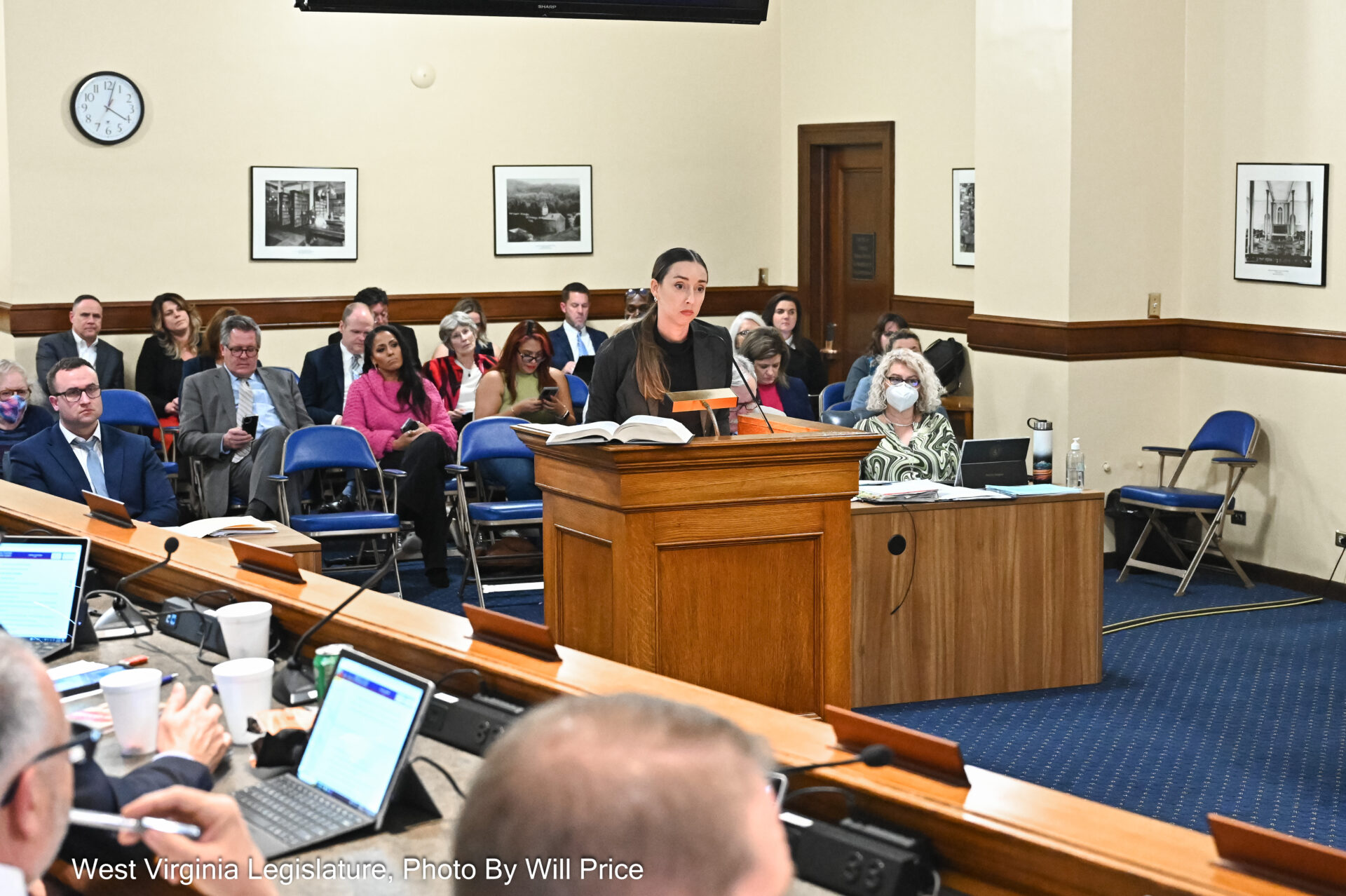Senate Bill 190 removes the defense of marriage from the definition of sexual contact and removes marriage as a defense to first and third-degree sexual assault.
Sen. Ryan Weld, R-Brooke, explained the purpose of the bill to the Senate Judiciary Committee.
“As it stands now, an individual could not be found guilty of sexual abuse in the first degree, if they were in fact, married to the victim, is that correct,” Weld asked of counsel. “And so that’s the distinction that we’re here making today, potentially within Senate Bill 190, so that would be what is called the marital exception. So we would be removing that.”
Senate staff counsel confirmed what Weld said.
The prosecuting attorney for Monongalia County, Gabrielle Mucciola, testified before the committee. She said that the marital exemption is a barrier to prosecution in crimes involving a marriage.
“These cases are wildly underreported,” Mucciola said. “And I would say that this exemption creates just another hurdle for victims of sexual abuse and sexual assault to come forward and feel comfortable that West Virginia adequately protects them.”
Opponents of the bill voiced concerns about false reporting and “he said, she said” arguments. Sen. Patricia Rucker, R-Jefferson, spoke in opposition to the bill.
“I wish that I could feel confidence in the checks and balances and judicial system that we have,” Rucker said. “But the reality is that in this day and age, there are many, many cases where individuals who are angry with each other, disappointed by each other, fighting and trying to take advantage of our system to try to hurt the other person because of whatever, angry, whatever has occurred. And they’re not always truthful.”
Weld spoke in favor of the bill, citing his trust in the justice system’s ability to try these crimes.
“The decision before us right now, is whether we want to signify to the married people around this state, man or woman and to the rest of the nation for that matter, that it is a crime to sexually abuse your spouse. That is the question for us,” Weld said. “Are we going to allow for spouses to be sexually abused in the state? Or are we going to put a stop to that and find that there is no difference? Whether or not you sexually abuse your spouse, or whether you sexually abuse a stranger off the street?”
Sen. Jay Taylor, R-Taylor, apologetically supported the bill.
“I’m sorry to, you know, some have encouraged me to vote against this bill,” Taylor said. “But I just I have to vote yes, because I respect my wife, and it just does not make sense to me that this is in our laws. And I understand that the argument about well, it could get abused. Well, all of our laws get abused by so many different things.”
The bill passed by a roll call vote of 13 to 4 and was read on first reading on the Senate floor Friday.
